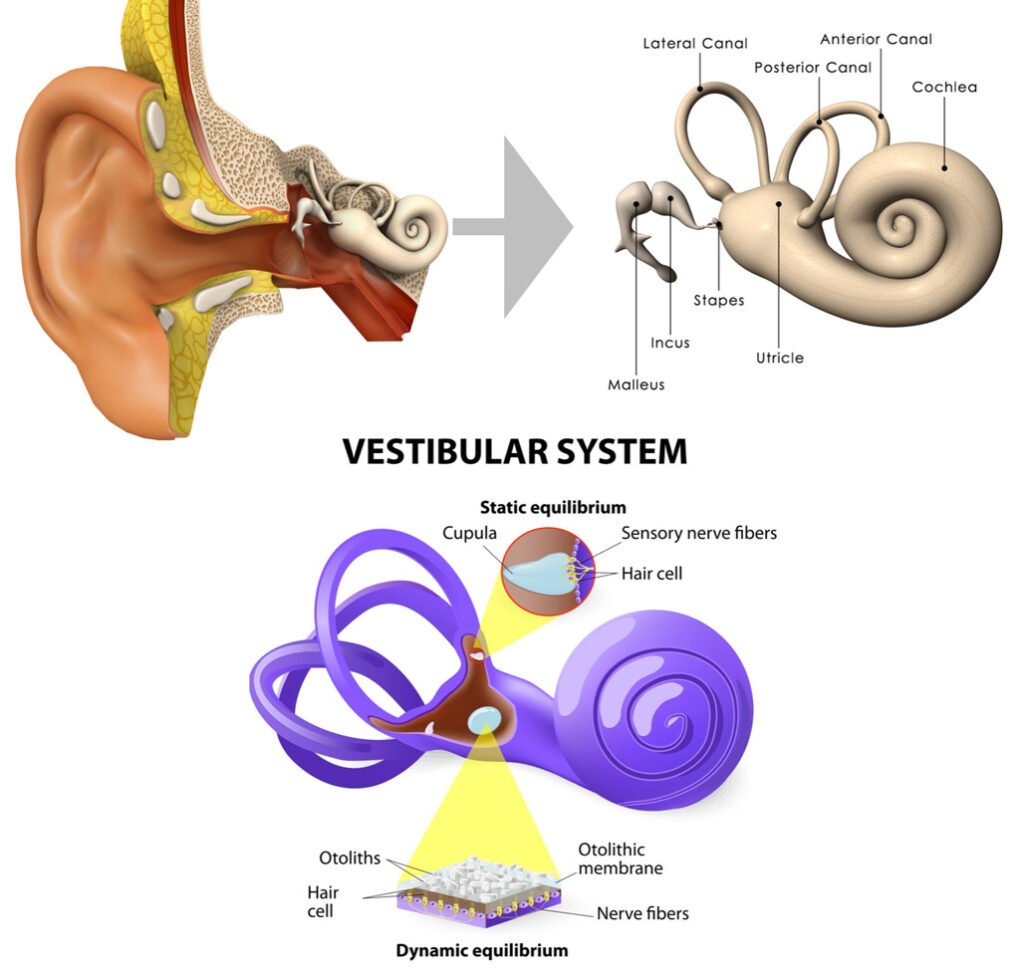Impairment of the Vestibular System and How Physiotherapy Can Help
Dizziness – severe light-headedness and swaying – is a common experience as we age and how can vestibular physiotherapy help?
In fact, in those above 70 years, approximately 75% will have balance impairment, and of those over 80, 85% will have some degree of vestibular dysfunction (this is the system that helps create our sense of balance).
Almost half of dizziness and vertigo (the sensation of the room spinning) in older people is caused by Benign Paroxysmal Positional Vertigo (or BPPV).
While BBPV and other vestibular impairments can be quite uncomfortable, they can also be managed successfully with physiotherapy.
Unfortunately, screening for vestibular impairment is not performed often enough, leading to underdiagnosis and treatment for many people.
Vestibular System Function
The vestibular system functions to provide your brain with sensory information about linear movement, rotational movement, and your body’s relationship to gravity. It does this through five sensory organs located deep into your ear.

source: http://entkidsadults.com/
Three of the organs (the semicircular canals) provide information about the rotational movement of the head, and the other two (the otoliths) provide information about gravity and your body’s relationship to gravity.
In BPPV, crystals from the otoliths may travel to the semicircular canals, which leads to vertigo, irregular movements, and nausea when changing head positions.

Factors Leading to Dizziness
There are several potential causes of dizziness. Issues with the cervical spine or neck, cardiovascular, neurological, or visual systems could cause dizziness.
Additionally, as we age, there is some age-related degeneration of the vestibular system (which accounts for the higher incidence of vestibular issues with age). Even inner ear infections can lead to balance and dizziness issues.
Benign Paroxysmal Positional Vertigo (or BPPV) is a common cause of vertigo and dizziness.
Fortunately, it is quite treatable with the use of different positioning maneuvers.
Vestibular problems are also likely to occur after head trauma (like whiplash in a car accident or after a concussion).
Vestibular rehabilitation has been shown to help facilitate quicker recoveries following concussion or whiplash, and to help facilitate a quicker return to sport for youth athletes after a concussion.
Vestibular Physiotherapy in North Vancouver
Physiotherapy is an effective, evidence-based approach to help you recover from dizziness or vertigo episodes.
Physiotherapy can help you reduce dizziness and vertigo, improve your balance, reduce your fall risk, and improve your ability to see clearly during head movement.
Working with the physiotherapy team at Cypress Physiotherapy in North Vancouver is an excellent tool to help you managed dizziness and vertigo and improve your function.
During the appointment, we will provide an assessment that is individually tailored to you. This will include gathering a detailed history from you to inform the assessment and treatment.
From there, Cypress physiotherapists in North Vancouver will perform a detailed assessment of all the factors that could be contributing to your dizziness including your vestibular system.
This process will help us develop a rehabilitation plan tailored to your specific individual needs.
Depending on the assessment findings, your rehabilitation plan may include manual therapy, vestibular repositioning maneuvers, visual exercises, visual-vestibular integration exercises, and balance exercises.
By understanding the anatomical underpinnings of how the vestibular system works, we can selectively employ the right techniques and create a sustainable and effective care plan to help you get back to participating in the things and activities that you love without dizziness or vertigo.

